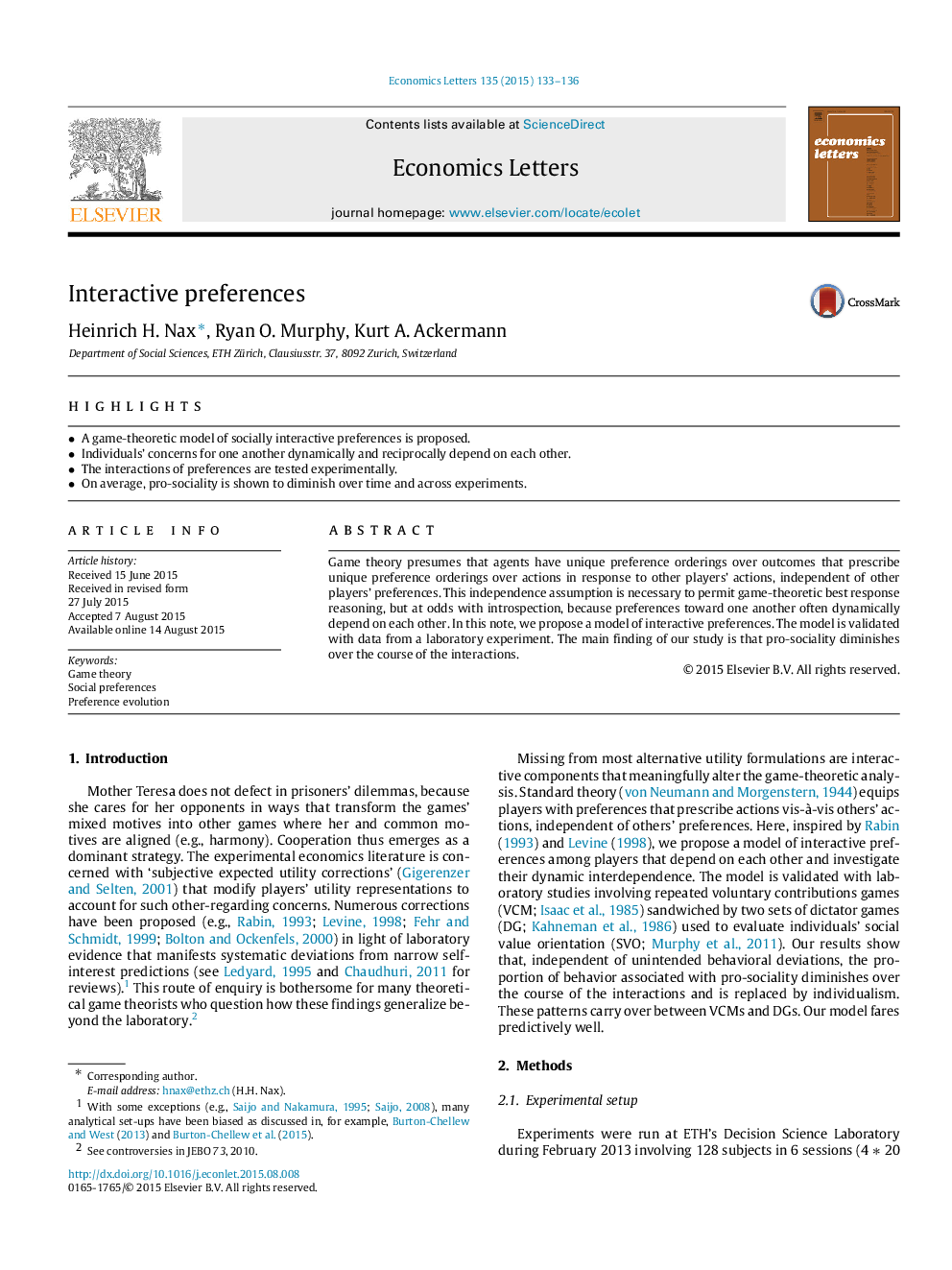| Article ID | Journal | Published Year | Pages | File Type |
|---|---|---|---|---|
| 5058370 | Economics Letters | 2015 | 4 Pages |
â¢A game-theoretic model of socially interactive preferences is proposed.â¢Individuals' concerns for one another dynamically and reciprocally depend on each other.â¢The interactions of preferences are tested experimentally.â¢On average, pro-sociality is shown to diminish over time and across experiments.
Game theory presumes that agents have unique preference orderings over outcomes that prescribe unique preference orderings over actions in response to other players' actions, independent of other players' preferences. This independence assumption is necessary to permit game-theoretic best response reasoning, but at odds with introspection, because preferences toward one another often dynamically depend on each other. In this note, we propose a model of interactive preferences. The model is validated with data from a laboratory experiment. The main finding of our study is that pro-sociality diminishes over the course of the interactions.
